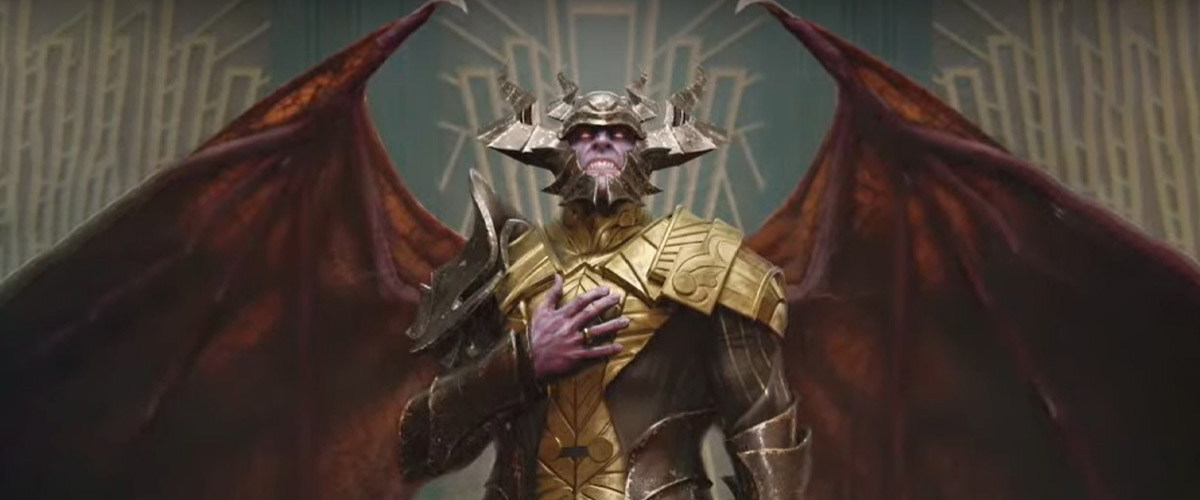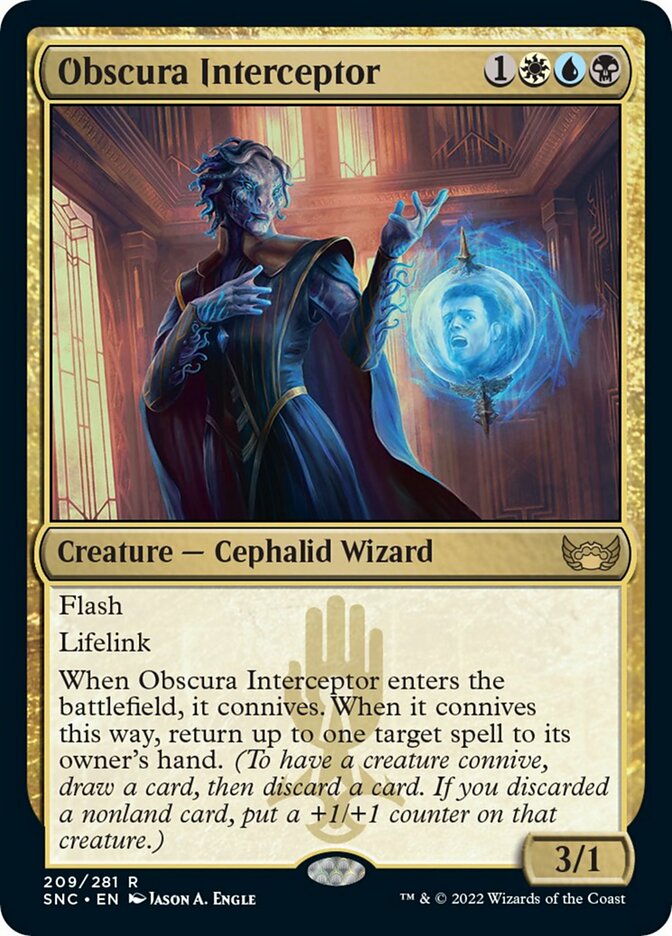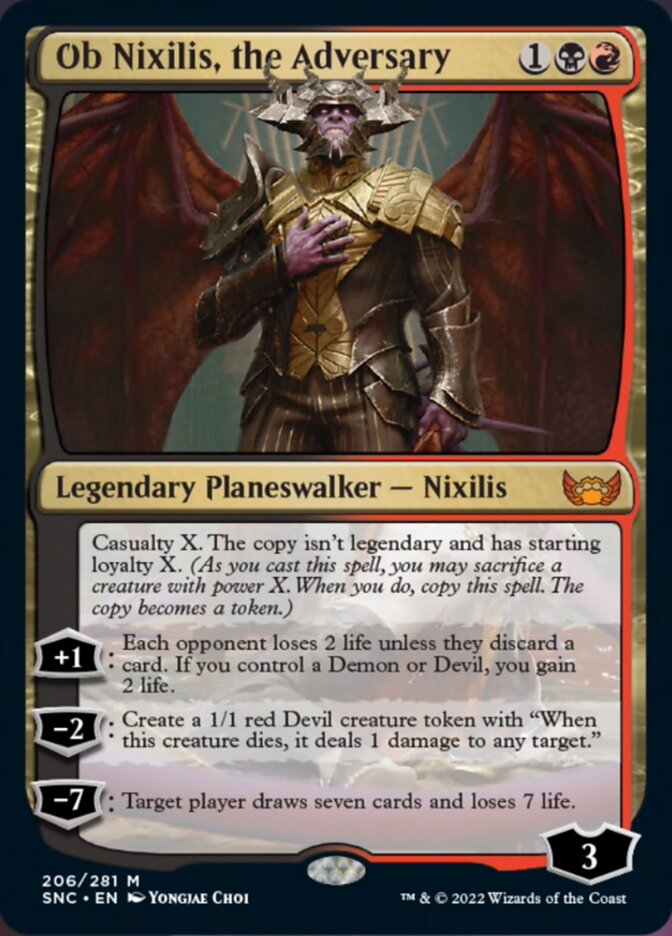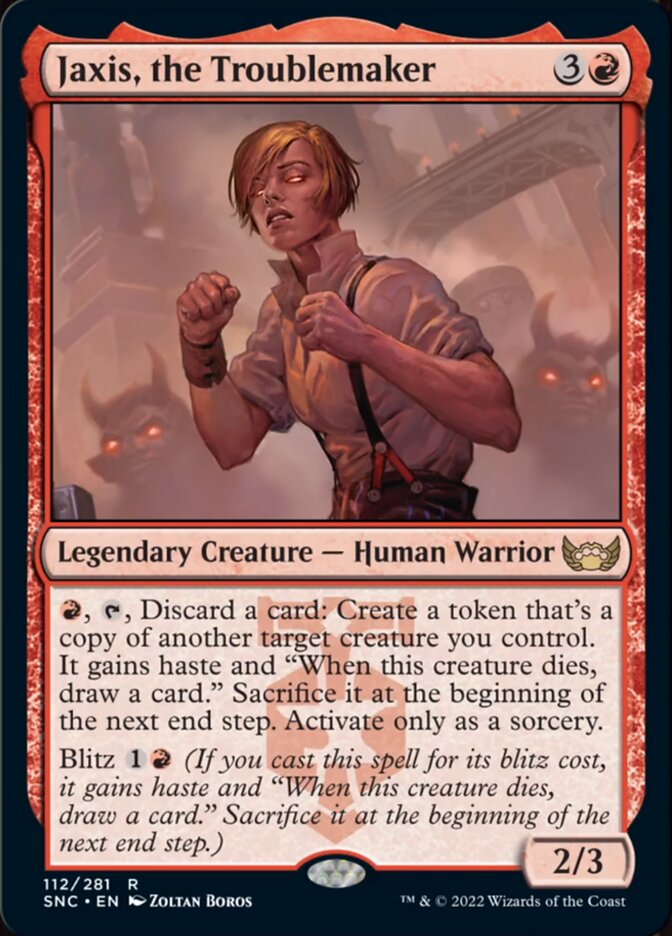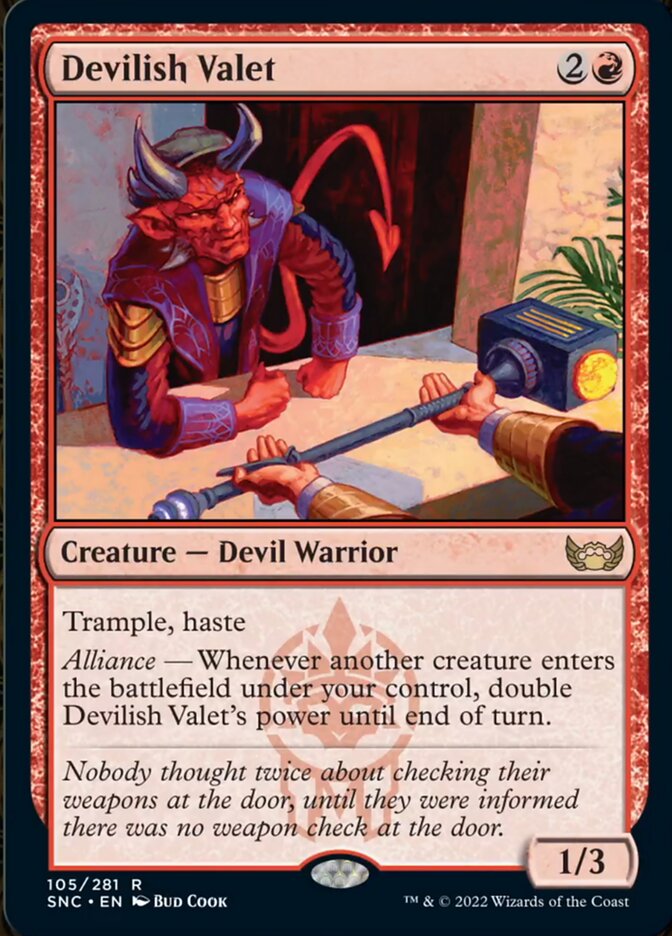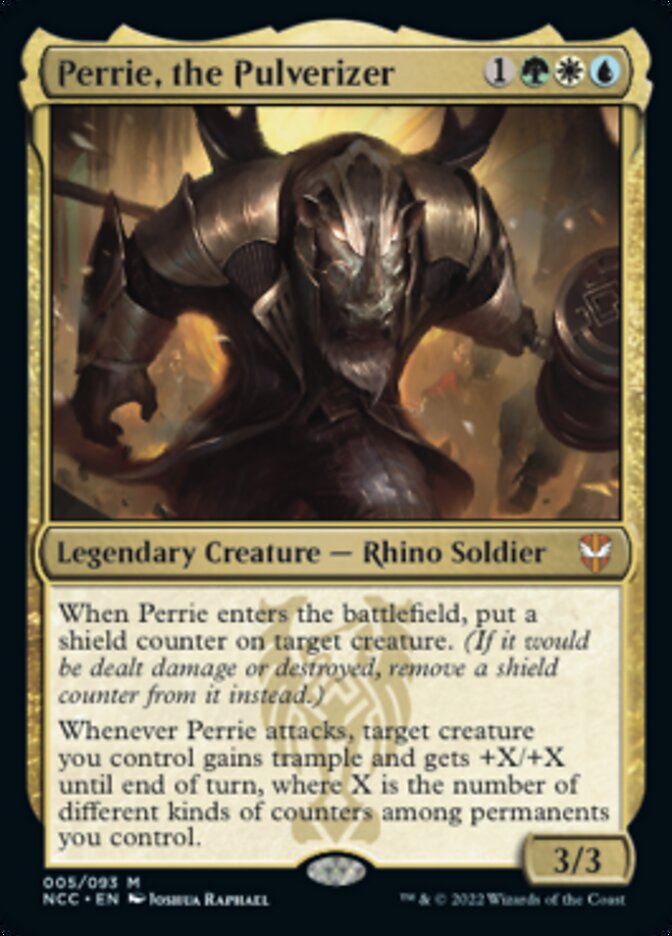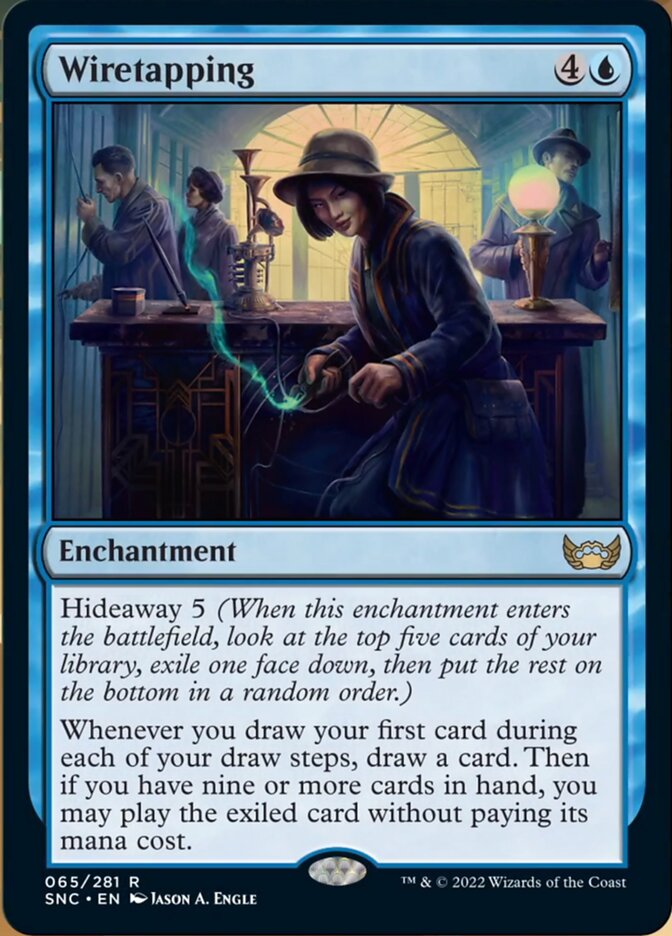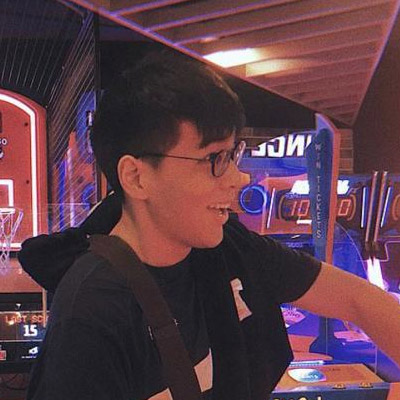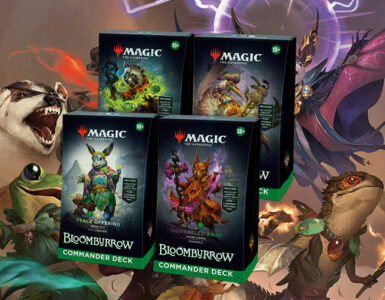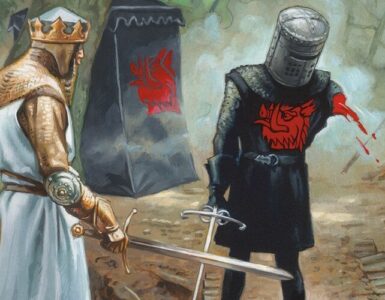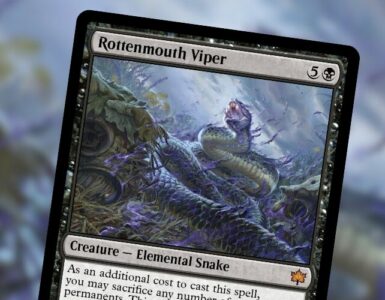Magic: The Gathering‘s (MTG) upcoming expansion, Streets of New Capenna, is themed around 20th century organised crime, noir gangster movies, and art deco (and the cards do make the premise come alive!). The lore involves the city of New Capenna, where the glitzy glamour of famous people is contrasted only by the dark seediness of the underworld. It’s a city built by angels but ruled by five demon crime families, consistent with the theme of stark duality.
This also means that there will be new and returning mechanics to play around with. Due to how Streets of New Capenna is designed around the idea of crime families, the mechanics are also designed to be thematic, based on the nature and traits of those various families. We have listed down the mechanics here so you can better decide which family and colours better suit your playstyle in this expansion.
Connive
The Obscura is the black-blue-white family. They are schemers who are able to keep out of the public’s eye, and they know how to avoid drawing attention to themselves. As such, Connive is a fitting mechanic used to define them.
When a creature you control connives, you get to draw a card and then discard a card. This helps in searching for just the right card you need while getting rid of any unwanted bloat in your hand. Also, if a nonland card is discarded, the creture that connived gets a +1/+1 counter. Not only that, some creatures even activate special effects when they connive.
For example, the Obscura Interceptor is able to return one target spell to its owner’s hand when it connives by entering the battlefield. This is a mechanic for the more controlor combo-oriented player.
Casualty
The Maestros is the blue-black-red family, and they are of a more manipulative and violent ilk. This is made clear from the Casualty mechanic, which is always accompanied by a number. Cards with Casualty offers the player the option to pay an additional cost to essentially double a spell or triggered ability. For instance, a card which says “Casualty 1” gives the player the option to sacrifice a creature with power 1 to activate the effects of the spell an additional time.
However, there can only be one creature sacrificed for each Casualty trigger, thus, for Casualty 2, a creature with power 2 must be used to activate it, and not two creatures with power 1. This mechanic is great for spell-focused decks that happen to summon lots of fodder onto the field. Of course, that depends entirely on the effect of the cards themselves.
While initially designed to only appear on Instant and Sorcery cards, the Casualty mechanic does appear on one other card – Ob Nixilis, the Adversary. He is a legendary planeswalker, and with the Casualty mechanic, it is possible to make a non-legendary copy of him. It’ll be fun to craft a deck around this card!
Blitz
The Riveteers are the black-red-green family. They have a more blue collar working class root, and are eager to get into the thick of the action. The Blitz mechanic, which appears on several Riveteer creature cards, is a very fitting one.
Blitz offers an alternative to the normal mana cost in order to play those creatures. Thus, a player can choose to either summon a creature using its normal mana cost, or to summon it using its cheaper Blitz cost. The catch is that a creature Blitzed onto the battlefield will have haste, but will be sacrificed at the end of the turn.
Keeping in line with the idea of persistenly striking hard and fast, when a creature that’s Blitzed in is sent to the graveyard, the player draws a card. This is a way to help such an aggro-inclined mechanic keep the pressure up.
Alliance
The Cabaretti is the red-green-white family, and they have a penchant for the diplomatic social game in the underworld. They know that connections count for a lot, and rubbing shoulders with the right people can get you far in life.
The Alliance mechanic is thus highly thematic for this family. Alliance is an ability that activates whenever a friendly creature enters the field. Thus, while you have a creature with Alliance summoned, if you summon multiple creatures, the Alliance ability is triggered multiple times. There is undeniable strength in numbers here.
This is definitely a mechanic that could elevate token-based decks to another level.
Shield Counters
The Brokers are the green-white-blue family, and they make use of the magical laws of the city to their advantage. Since they offer protection to people desperate enough to engage their services, the Shield Counters mechanic fits perfectly with their modus operandi.
Shield Counters are basically temporary Indestructible. Whenever a creature with Shield Counters would be dealt damage or destroyed, a Shield Counter is removed instead. Some cards even allow the player to place Shield Counters on other creatures, staying true to the idea of the Brokers providing protective services to others.
Hideaway
Hideaway is a returning mechanic, and it was first introduced in 2007’s Lorwyn set. This is a mechanic not specifically linked to any family in Streets of New Capenna. When Hideaway is triggered, the player will look at the top few cards (exact number specified by the card with Hideaway) of their deck, choose one to exile face-down, and place the rest on the bottom of the deck.
Then, once a certain condition is met, as specified on the card with Hideaway, the exiled card can then be played. This is not just an interesting way to keep important cards safe until they’re played, but also as a way to gain more information about the state of one’s deck. Not only that, it is also fitting in a set themed around shady dealings and underworld conflict.
These are the new and returning mechancis from Streets of New Capenna that we know of so far. For those who can’t wait to dive right into MTG action, here are a few box sets that you can consider getting your hands on. For those who want to explore the various MTG packs and boxes, including those from previous expansions, the Wizards of the Coast store on Shopee is a great place to start.
Newcomers who find the deluge of information surrounding the game daunting, fret not. We have a primer that smooths out the process for you.

